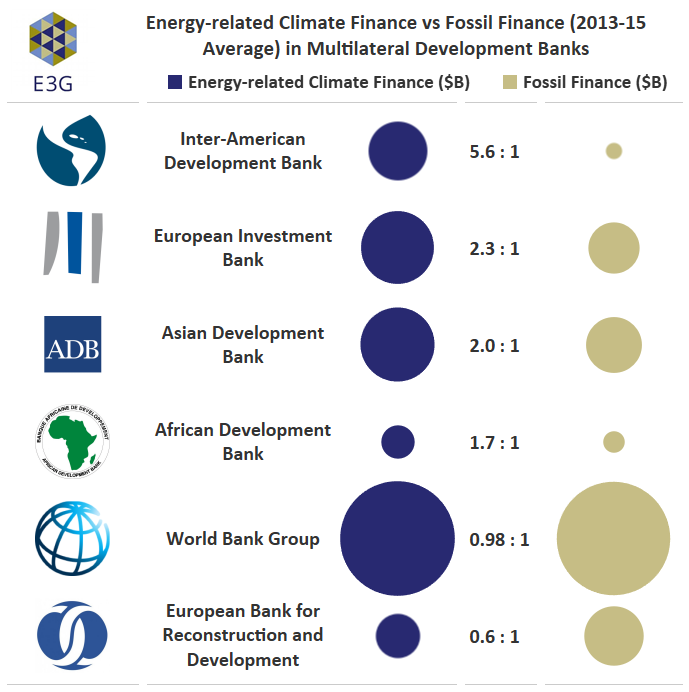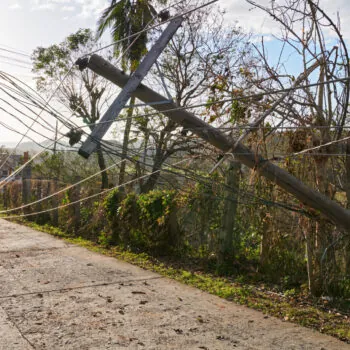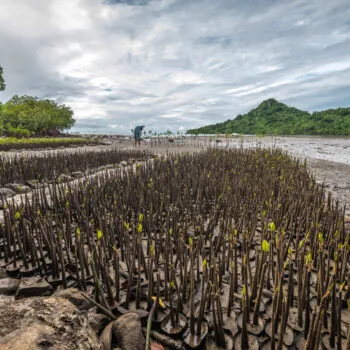E3G's recently launched briefing shows that, while some multilateral development banks are making good progress on climate action, many are still financing billions of dollars in fossil fuel projects, despite mounting climate impacts and global commitments like the Paris Agreement reached in December 2015.
This brief is part of the Big Shift Campaign, a global effort composed of dozens of civil society organisations encouraging government-backed multilateral development banks to reinforce the aims of the Paris Agreement and commit to a shift from fossil fuel finance to clean energy finance.
Ratio of Energy-related Climate Finance to Fossil Finance Directed to Developing Countries (2013-15 Average), from High to Low:

Key findings include:
- Government-backed Multilateral Development Banks (MDBs) are not greening their investments fast enough. While overall spending on climate-related activities is higher than on fossil fuels, there is still a lack of progress in phasing out fossil fuel investments and increasing climate finance.
-
The Inter-American Development Bank is a leader among MDBs, with the highest green-to-brown ratio. The European Bank for Reconstruction and Development and the World Bank Group have emerged with the lowest green-to-brown ratio among MDBs, E3G analysis shows.
-
Analysis found some projects reported as climate finance were in fact fossil fuel projects instead. The European Bank for Reconstruction and Development provided funding to an offshore gas exploration project in Azerbaijan, the Lukoil Shah Deniz Stage II project, and counted $10m as climate finance.
-
MDBs should stop all remaining support for coal and commit to ending finance for exploration of fossil fuels. The African Development Bank and Asian Development Bank have already excluded financing for fossil fuel exploration based on financial risks, and the other MDBs should follow suit.


